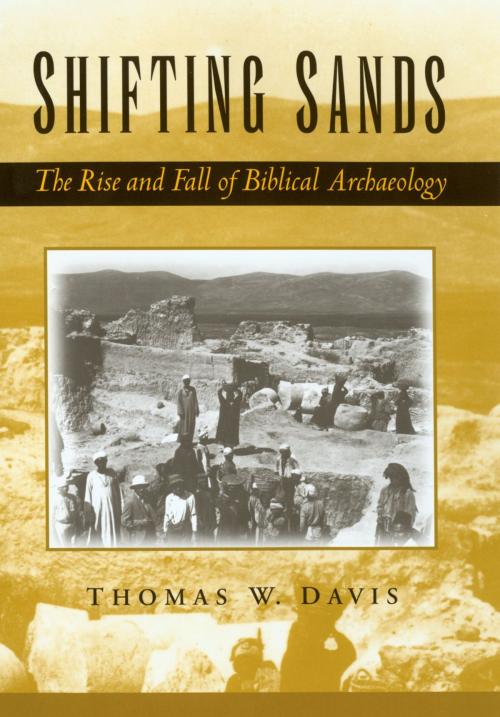Shifting Sands
The Rise and Fall of Biblical Archaeology
Nonfiction, Religion & Spirituality, Bible & Bible Studies, Study, Old Testament, History| Author: | Thomas W. Davis | ISBN: | 9780190290450 |
| Publisher: | Oxford University Press | Publication: | March 4, 2004 |
| Imprint: | Oxford University Press | Language: | English |
| Author: | Thomas W. Davis |
| ISBN: | 9780190290450 |
| Publisher: | Oxford University Press |
| Publication: | March 4, 2004 |
| Imprint: | Oxford University Press |
| Language: | English |
Before the 1970s, "biblical archaeology" was the dominant research paradigm for those excavating the history of Palestine. Today this model has been "weighed in the balance and found wanting." Most now prefer to speak of "Syro/Palestinian archaeology." This is not just a nominal shift but reflects a major theoretical and methodological change. It has even been labeled a revolution. In the popular mind, however, biblical archaeology is still alive and well. In Shifting Sands, Thomas W. Davis charts the evolution and the demise of the discipline. Biblical archaeology, he writes, was an attempt to ground the historical witness of the Bible in demonstrable historical reality. Its theoretical base lay in the field of theology. American mainstream Protestantism strongly resisted the inroads of continental biblical criticism, and sought support for their conservative views in archaeological research on the ancient Near East. The Bible was the source of the agenda for biblical archaeology, an agenda that was ultimately apologetical. Davis traces the fascinating story of the interaction of biblical studies, theology, and archaeology in Palestine, and the remarkable individuals who pioneered the discipline. He highlights the achievements of biblical archaeologists in the field, who gathered an immense body of data. By clarifying the theoretical and methodological framework of the original excavators, he believes, these data can be made more useful for current research, allowing a more sober, reasoned judgment of both the accomplishments and the failures of biblical archaeology.
Before the 1970s, "biblical archaeology" was the dominant research paradigm for those excavating the history of Palestine. Today this model has been "weighed in the balance and found wanting." Most now prefer to speak of "Syro/Palestinian archaeology." This is not just a nominal shift but reflects a major theoretical and methodological change. It has even been labeled a revolution. In the popular mind, however, biblical archaeology is still alive and well. In Shifting Sands, Thomas W. Davis charts the evolution and the demise of the discipline. Biblical archaeology, he writes, was an attempt to ground the historical witness of the Bible in demonstrable historical reality. Its theoretical base lay in the field of theology. American mainstream Protestantism strongly resisted the inroads of continental biblical criticism, and sought support for their conservative views in archaeological research on the ancient Near East. The Bible was the source of the agenda for biblical archaeology, an agenda that was ultimately apologetical. Davis traces the fascinating story of the interaction of biblical studies, theology, and archaeology in Palestine, and the remarkable individuals who pioneered the discipline. He highlights the achievements of biblical archaeologists in the field, who gathered an immense body of data. By clarifying the theoretical and methodological framework of the original excavators, he believes, these data can be made more useful for current research, allowing a more sober, reasoned judgment of both the accomplishments and the failures of biblical archaeology.















